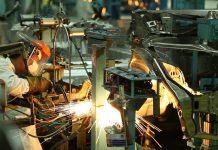Since the early 2000s, the Philippines’ technology sector has been largely defined by a multitude of businesses engaged in electronics manufacturing, information technology, and business process management services—companies that belong to industries that largely cater to international markets. These services have laid the foundations for the next wave of technology-driven industries that will reshape the Philippine economy and directly affect the lives of millions of Filipinos at present and in the future.
Today, new businesses that seek to address modern challenges—like those related to climate change, the proliferation of data, and healthcare—form the backbone of the high-tech sector. Here are just some of the industries that are likely to make a major impact on the Philippine economy:
1.) Renewable Energy
Businesses today are under increasing market and regulatory pressure to adopt sustainable practices. The availability of renewable energy sources has thus become a major selling point for countries hoping to attract major investors.
In the Philippines, a few private infrastructure development companies have already taken steps to meet this demand for renewable energy. Recently, Philippine Economic Zone Authority (PEZA), together with Aboitiz InfraCapital (AIC), inked a memorandum of understanding with Junca Global Partner Inc. to develop renewable energy in the Philippines. Junca Global Partner has an especially diverse tech portfolio, with interests in stem cells biotech, fintech, and blockchain technology.
The Philippines has massive potential for renewable energy, thanks to its large geothermal reserves and its potential for developing biomass, sustainable hydro, and wind as secondary energy sources. With its existing comparative advantages as an IT and business process outsourcing hub, infrastructure development partnerships such as those between PEZA and Junca can make the country the first choice for investors interested in claiming renewable energy incentives.
2.) Data Centers
Due to the massive energy demands of their industry, data centers are among the industries most motivated to switch to renewables. The recent partnership between AIC and EdgeConnex, a noted hyperscale data center provider, is just the beginning of a trend that will see many more data centers move to AIC’s economic estates, drawn by their mature infrastructure, easy access to quality labor inputs, and nascent renewable energy capacity.
Next-generation hyperscaler data centers are likely to flock to the Philippines throughout the 2020s, thanks to its competitive edge in business process management, the abundance of qualified IT workers, future renewable energy infrastructure, and strategic location. This trend may eventually see the Philippines become at par with regional rivals such as Malaysia and Thailand, perhaps exceeding them in this area by the next decade.
3.) Water Treatment
Due to population growth, climate change, and aging water infrastructure, many areas in the Philippines are already experiencing ongoing challenges with water security. While most of the country has historically had abundant freshwater reserves, it will soon need to leverage new technologies to conserve water and source it from previously unutilized sources.
Desalination and water treatment technologies powered by renewable energy may provide part of the answer. AIC recently submitted an unsolicited proposal to the Metro Cebu Water District (MCWD) to set up a desalinated bulk water project that would provide the district with up to 30 million liters of desalinated water per day. AIC intends to leverage its partnership with Singapore-based Keppel Infrastructure to supply the technologies needed by the project. The project would use reverse-osmosis technologies similar to what Singapore currently uses for its domestic water supply.
There are other bulk water supply projects that are already underway in other parts of the Philippines. One notable example is that of the Davao City Water District’s Bulk Water Supply Project of AIC’s Apo Agua. Apo Agua is building Davao’s bulk water supply facilities that will provide over 300 million liters of clean and safe water to over 1 million Davaoenos. It will tap the Tamugan River as its main source and employ a water-energy nexus concept to run the facility on renewable energy. Given the current challenges to domestic water security, these water treatment projects and the technologies they use will become a necessary part of Filipino lives in the near future.
4.) Biotechnology
Unbeknownst to many Filipinos, the Philippines is a regional biotechnology leader, at least, according to the United States Department of Agriculture. Smart investments and policies made in the early 21st century have given the Philippines a considerable lead over its ASEAN neighbors in select areas of agriculture-based biotechnology.
Government and private entities in the Philippines operate several laboratories for both plant and animal-related biotech research. Notably, the country also operates a Biological Safety Laboratory Level 3 laboratory for infectious disease research. These biotech labs may one day become central in establishing the Philippines as a leader in specific areas of biotech within the Asia-Pacific region.
Industrial parks and economic estates in the Philippines are also poised to benefit from the local growth in biotech, thanks to an ongoing convergence between Big Data and healthcare. Cutting-edge biotechnology research requires massive data processing capacity which could be facilitated on locally based hyperscale data centers. The entry of more hyperscalers may also create the right conditions for the transfer of technology and expertise, which may eventually serve to boost some areas of the local biotech industry.
5.) Blockchain
If there is any country that is well-positioned to be a leader in blockchain technology adoption, it’s the Philippines. Currently, the Philippines has the highest NFT penetration rate and also boasts a young and highly tech-savvy population. With these younger Filipinos poised to occupy more and more leadership positions in the coming years, the country may very well be the first to tap into the promise of blockchain technologies in areas other than money transfers.
Blockchain’s central concept of linking immutable data blocks with encryption technology promises to pave the way for highly efficient and fraud-free lending, insurance, logistics, public benefits disbursements, and even elections. Given the high penetration of NFTs and other blockchain assets in the Philippines, the country will be in a good position to pioneer and validate all these other use cases.
One other compelling advantage the Philippines has over its regional blockchain industry rivals is the aforementioned growth of locally based data centers. Many blockchain hyperscalers are actively looking for more sustainable and affordable ways to improve their operations, and the development of renewables on AIC economic estates may further incentivize their move to the Philippines.
6.) Robotics
Aboitiz Power Corporation recently made a technological breakthrough with its development of 23 robots during a Robotic Process Automation (RPA) boot camp. However, these “robots” are probably not the physical robots that people usually imagine. Rather, these are process automation scripts that accomplish computing tasks that are normally done manually.
The Philippines already has a huge head start in this field as it is currently an international IT and business process management hub. It also notably graduates tens of thousands of IT and computer science students each year. This means that, rather than losing jobs to automation, the country may become a global hub for business process automation services, a service type that has more relative value than many other commonly outsourced services.
Virtual robotics is a field that is set to converge with additive manufacturing, hyper-personalization, and the internet of things, all trends which promise to offer extremely specific products on demand to customers, potentially upending mass manufacturing and marketing as we know it. With the Philippines’ current competitive advantages in IT, business process management, and virtual robotics, the country may become a lynchpin in the coming wave of AI-driven bespoke product development and manufacturing.
Final Words
These trends promise to bring sweeping changes not just to local businesses but to the rest of Philippine society. Should the national government, LGUs, and businesses manage to effectively direct the country’s early advantages in these areas, the net benefits to the economy and local way of life could be more far-reaching than those brought by the first wave of call centers which changed the country in the early 21st century.
Businesses and individual consumers will not only enjoy better access to more affordable energy and services, entrepreneurs will find almost limitless opportunities to find and develop new niches. As most of these trends are unprecedented in the Philippines, managing these nascent opportunities will likely prove to be a significant challenge, requiring all stakeholders to actively manage their risks and keep an eye out for ways to create lasting value. Recent developments on economic estates such as those managed by AIC may very well become key to making this all a reality.







